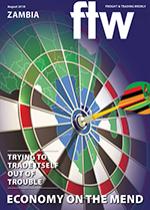Aproposed new tax on internet voice and video calls could increase the cost of doing business in Zambia – particularly for companies making use of teleconferencing on a regular basis.
In early August the Zambian government announced plans to tax internet-based calls with a daily tariff of US$0.30. This will affect users of WhatsApp, Skype and Viber. Dora Siliya, Minister of Information and Broadcasting Services, said in a statement that the government had decided on the move after “noticing an increase in the number of people making internet phone calls at the expense of traditional phone calls thereby impacting on telco operations.
“The use of internet phone calls is threatening the telecommunications industry and jobs in companies such as Zamtel, MTN and Airtel. Government has therefore introduced a 30 Ngwee-a-day tariff on internet calls.” It is reported that the Zambia Information and Communications Technology Authority (Zicta) estimates that up to 80% of Zambians are now using the online platforms to make phone calls. The tariff will be charged through mobile phone network operators and ISPs, but will only become effective once the government issues a Statutory Instrument (SI).
There is no clarification from officials as to when the SI will be introduced. There is strong opposition from bloggers, opposition politicians and citizens to the proposed tax. Bloggers of Zambia said in a statement “we are concerned about the proposed tariff because it is a major threat to freedom of expression, access to information, media rights, freedom of assembly online and an affront to the enjoyment of digital rights”.
In response to the criticism Siliya tweeted “the 30 ngwee tariff on internet calls ONLY is cost sharing to save jobs in telecoms. WhatsApp and Facebook owners don’t pay to access citizens’ phones via our telecom infrastructure yet citizens expect functioning and expanded network. “Social media surfing not impacted by tariff.”

